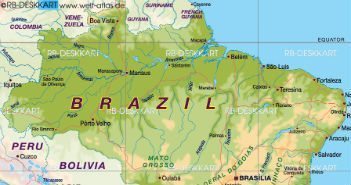On the same day the global Net Mundial event began in São Paulo, Brazilian president, Dilma Rousseff, enacted the Marco Civil da Internet bill, which aims to protect online privacy and sets up a form of net neutrality in the country. The senate passed the bill on April 22, which followed the lower house of Brazil’s congress, the Chamber of Deputies, voting to approve it in March.
Speaking at the Net Mundial event which focused on Internet governance, Rousseff recalled when the revelations surfaced about the collection and monitoring of communications. In Brazil, citizens, companies, diplomatic representatives and even the president herself were targeted and had their communications intercepted. 
“These events are not acceptable; [they] were not acceptable in the past and remain unacceptable today. In that way, they are an affront against the very nature of the Internet as a democratic, free and pluralistic platform,” Rousseff said.
Many of the speakers at the event argued that the Internet should be free, accessible and open. Wu Hongbo, the U.N. under-secretary-general, said that the Internet is the backbone of the global economy, and it is essential that Internet governance policies continue to foster freedom of expression and the free flow of the information. “Building consensus on the roadmap for the future of Internet governance is crucial, and the Net Mundial is a milestone,” Hongbo said.
Google VP Vint Cerf claimed that the openness of the Internet has been critical, and stakeholders need to find a way to protect the value of the Internet, which includes the rights of users.
Tim Berners Lee, one of the Internet’s founders, also highlighted human rights and free expression. “… we are making progress. That’s great. But, boy, we have a huge way to go. The principals of human rights on the Web are new, and they are not universally accepted,” he said.
Complaint against América Móvil—The second largest telecom group in Mexico, Telefónica, claims that the leading carrier, América Móvil, isn’t obeying regulations on sharing its network or selling unlocked mobile phones. The rules were imposed when the Mexico’s Federal Telecommunications Institute (Instituto Federal de Telecomunicaciones or IFT) determined that América Móvil was the dominant player in the Mexican telecom market. The company serves about 70% of Mexico’s mobile-phone customers and was ordered by the IFT to cut some of its rates and make other changes.
América Móvil responded by filing an injunction against the IFT’s resolution. According to Reuters, a Mexican court will begin analyzing the injunction request from América Móvil against the regulatory ruling designed to curb its dominance and spur competition.
América Móvil makes Telekom Austria deal—América Móvil announced on April 23 that it has entered into a shareholders’ agreement with ÖIAG the government holding company and largest shareholder in Telekom Austria. The deal will create co-ownership between América Móvil and ÖIAG, and the two companies will back a $1.38 billion capital increase for Telekom Austria. The deal is subject to the closing of the public offer and the approval by Telekom Austria’s shareholders. With ÖIAG holding more than 28% of Telekom Austria, and América Móvil around 27%, the deal also triggers a mandatory takeover bid for Telekom Austria under Austrian law, with América Móvil saying it would try to acquire the remaining shares of the carrier.
Entel investment in Nextel—A year after acquiring Nextel’s operations in Peru, Entel said it will invest $600 million over the next three years in those operations. The company said its main objectives are to renovate network access for both mobile and fixed lines, increase 3G services and handset offerings and re-position the company. The $410 million acquisition closed in August. Nextel is Peru’s No. 3 telecom company with total sales of $314 million and 1.6 million connections at the end of 2013.
More news from Latin America:
- Colombia’s National Spectrum Agency is planning a new frequency spectrum auction for mobile services. Further details will be announced later this year and the frequencies should be awarded in 2015.
- Brazil’s Oi is the last remaining carrier seeking to delay the government’s $3 billion wireless-airwave auction scheduled for August, Bloomberg reports, citing an official at Brazil’s telecommunications agency.
- Brazil ended March with more than two million LTE connections. In total, there were 273.58 million total mobile connections across the country.
- LTE investments are expected to drive mobile telecom capital expenditures this year in Latin America to $6.1 billion, according to ABI Research.
- Paraguay’s telecom regulator Conatel is preparing a 700 MHz spectrum band auction for mobile services next year.
- There are currently 38 commercial LTE networks in 18 countries across Latin America, largely in urban areas, and the number of LTE connections is expected to increase by 100% in the next two years, according to Informa Telecoms and Media.
Wondering what’s going on in Latin America? Why don’t you follow me on Twitter? Also check out all of RCR Wireless News’ Latin American content.

